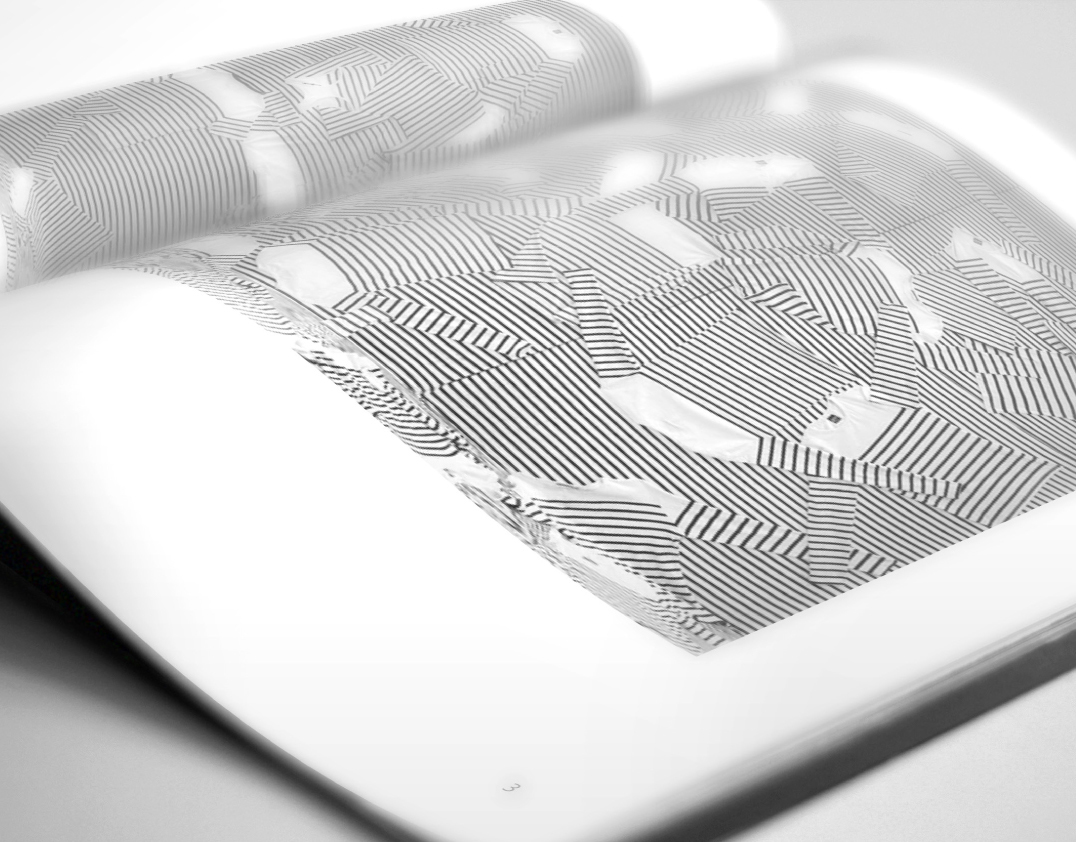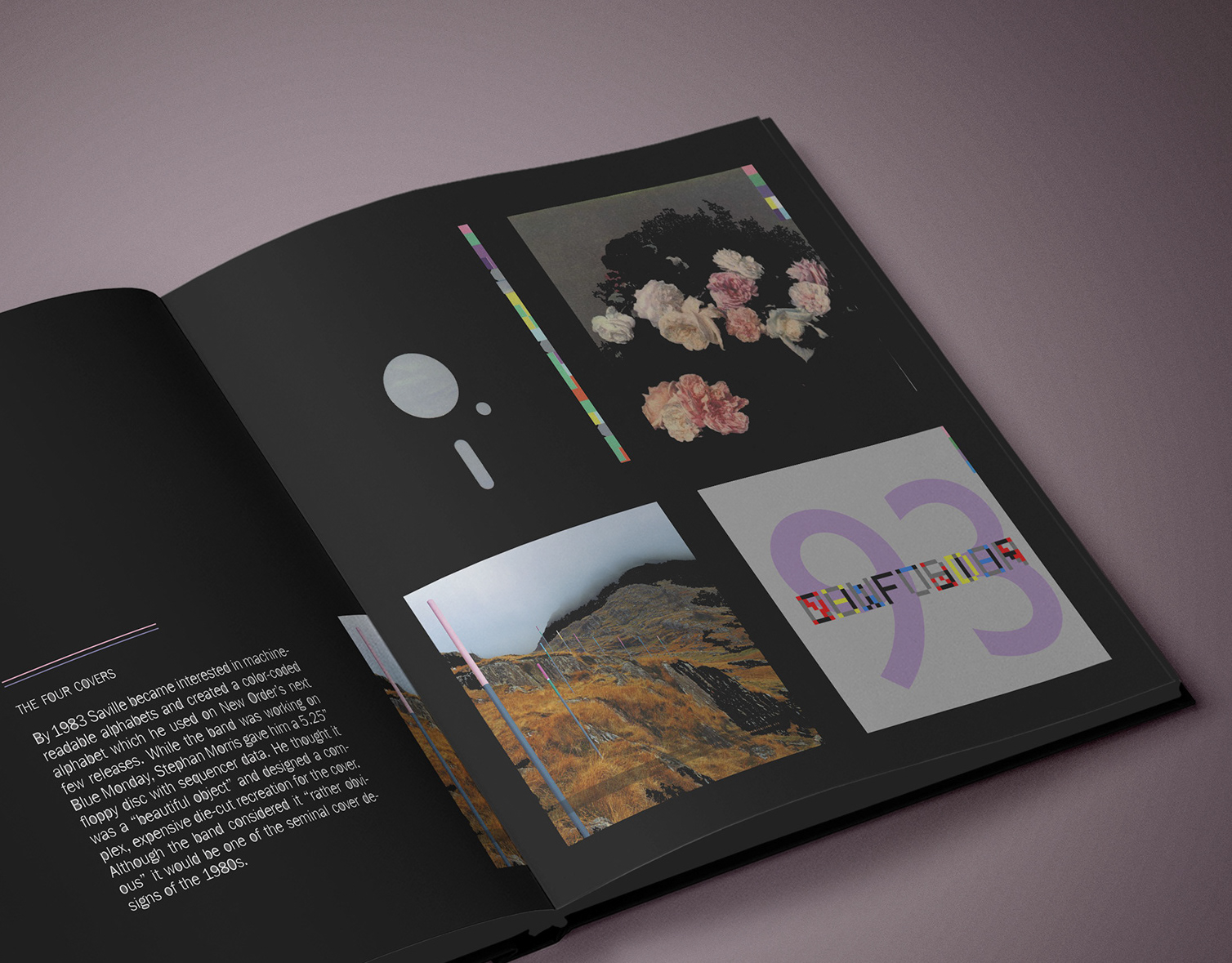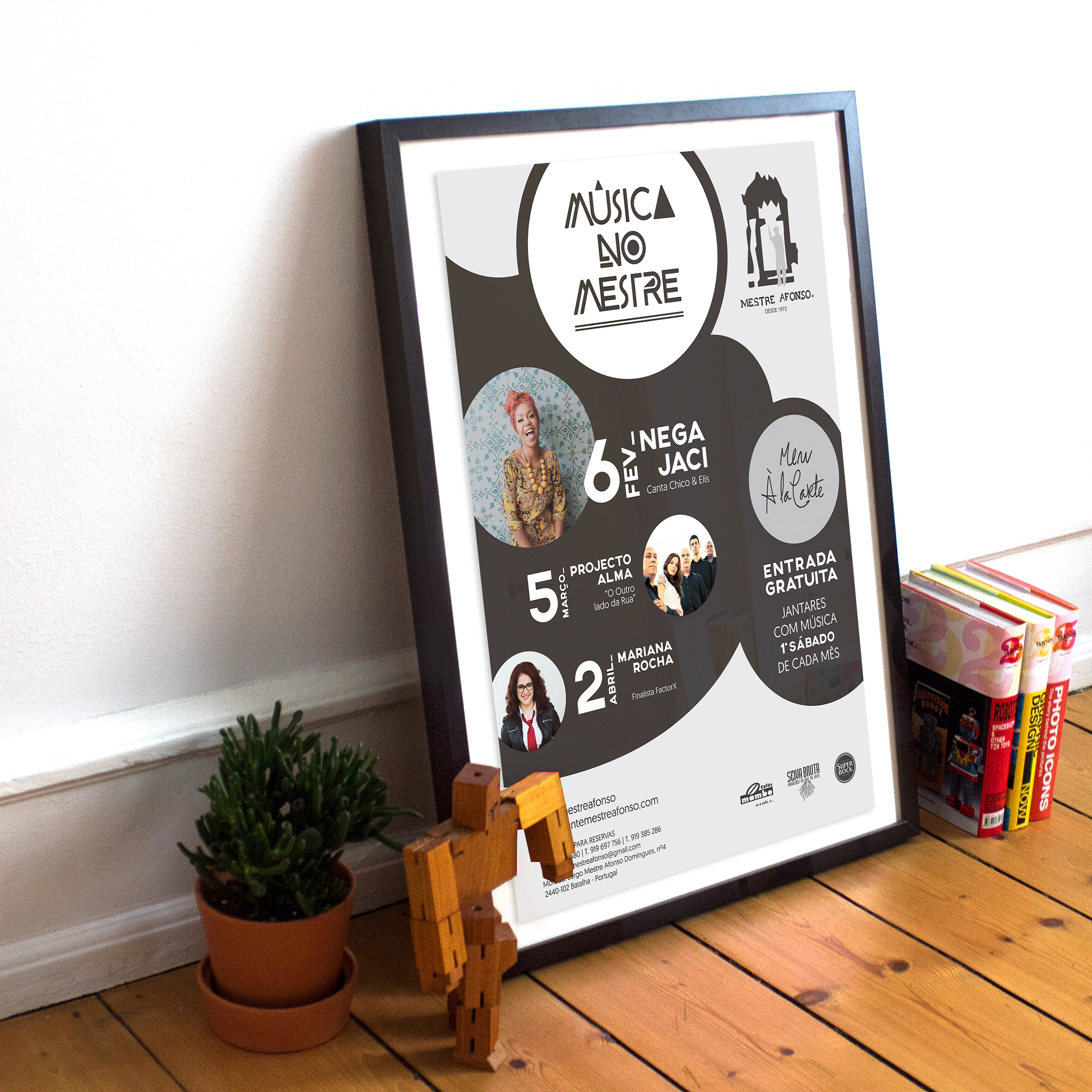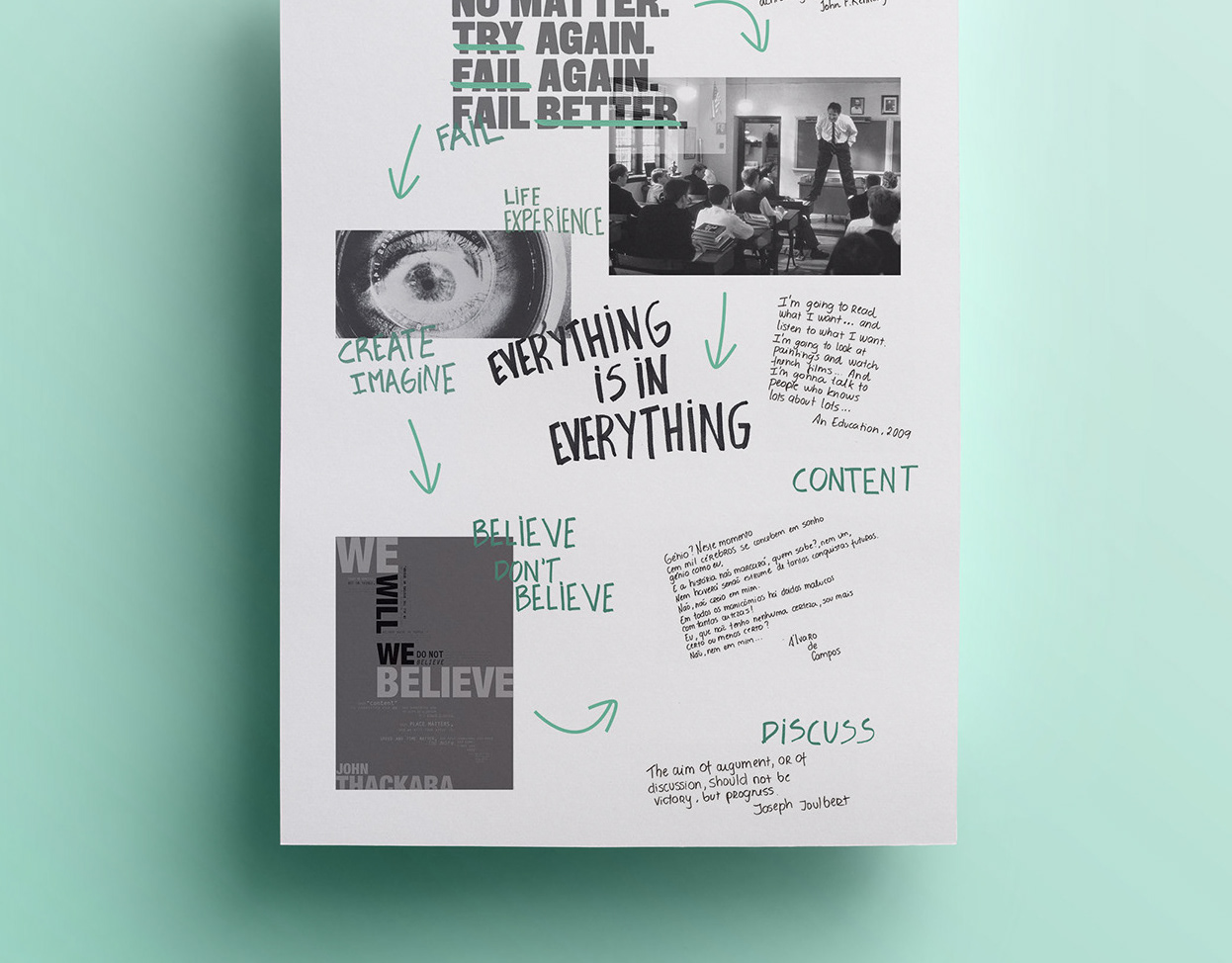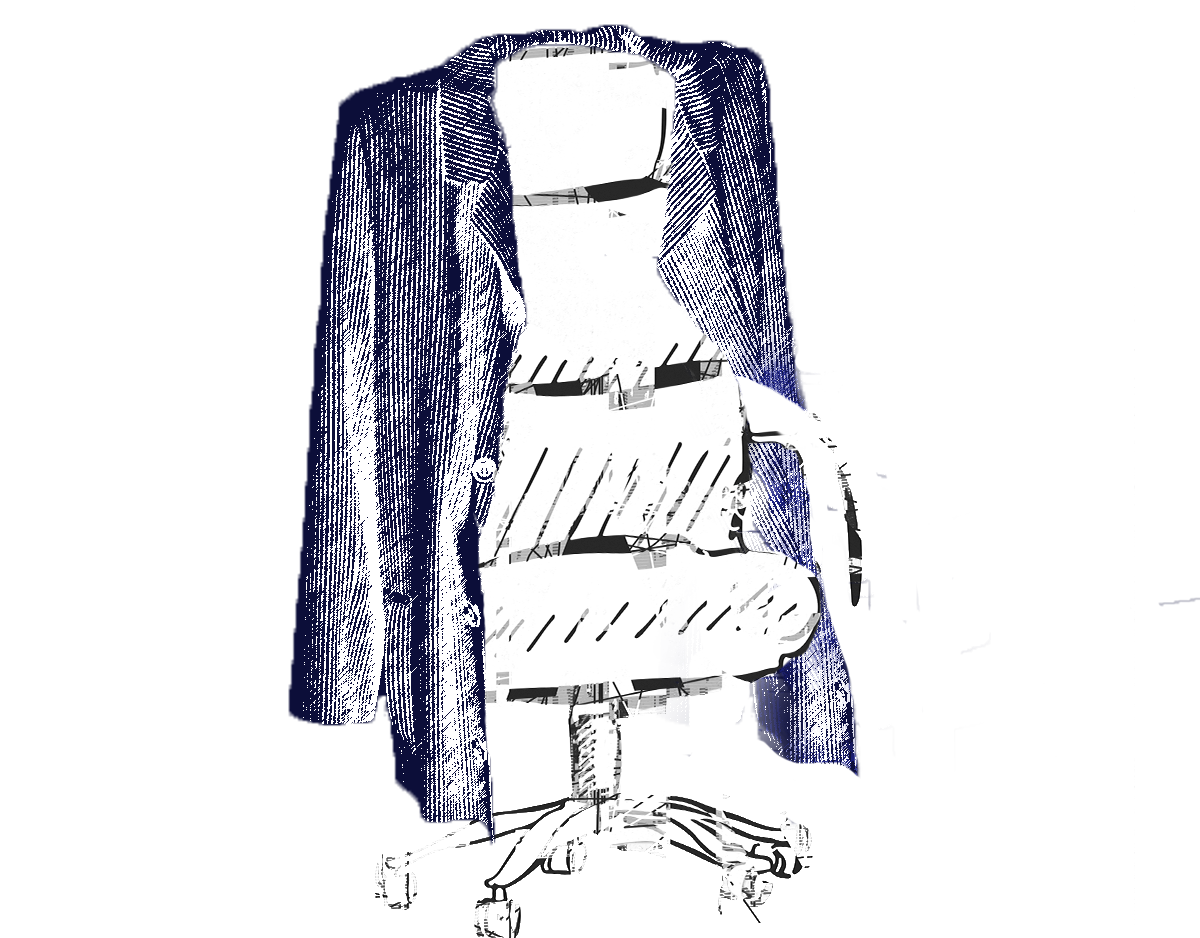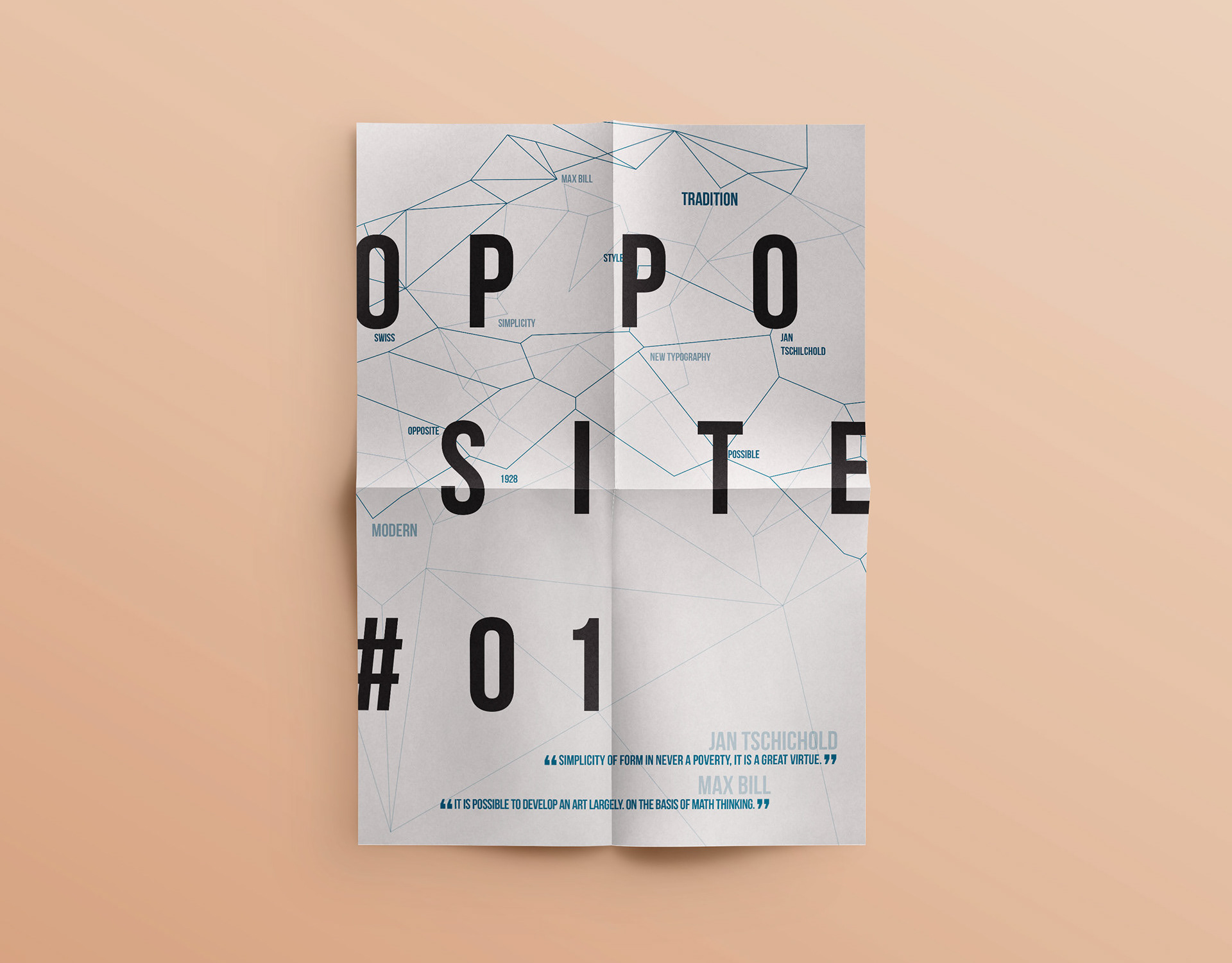“Poetry is the breath and finer spirit of all knowledge; it is the impassioned expression which is in the countenance of all Science.”
“What will your verse be?” presents itself as a publi- cation, which follows a continuous network of information, that cannot be broken.
The information sources relate to a variety of authors and historical periods: from the philosophers of the ancient Greece to today’s most famous writers.
Entitled to create a connection path, between science and poiesis, this edition allows this association, by means of a system of parallel relations. Words such as “discipline”, “tradition”, “honor” and “excellence” quickly find their way across and turn into “passion”, “poiesis” and “pursue”, exposing the idea that it is possible to uncover these last qualities from any sort of universe, including the science’s.
Along this subject, it is also implicit, how alternative unconventional teaching methods, can improve our way of thinking, enhance our perception and broaden our minds. Science and poiesis, even though frequently mistaken for opposites share a common bond. One cannot live without the other, being only capable of surviving if they manage to coexist in harmony. In a world ruled by human beings, poiesis’ vital to keep our hearts pumping blood through our veins. Powered and driven by emotions and feelings, we are qualified, skilled creatures able to do extraordinary things.Those accomplishments, our inventions, our creations, we owe them to science; however, we owe them to poiesis as well. Science provides the answers, the mathematical tools and the knowledge; nevertheless, poiesis allows us to go further, to live, to experience, to express ourselves. It feeds our desire, our motivation.
The contents are organized by two orientations: one horizontal and one vertical, the same way that there are always two ways to look and understand something. One functions as an annex of the other, supplying extra information and references that complements our discourse throught the entire publication.
‘Perhaps the arts and the sciences have never slept together
without one eye kept warily open’, yet ‘Even so, there
are
whose spirits willing to
been
have always those
bridge
that chasm’
that chasm’
They stood
shifted honey-bags up his spine. He was roses burning alive, and she was the haze
above tropical forest plus the unfathomed riches within. Like giving to a blind man eyes.
above tropical forest plus the unfathomed riches within. Like giving to a blind man eyes.
.
.
.
.
.
Out
past the sandpit to the Light Side’s open view of cloudshadow in Great Pucklands Meadow. Sun.
past the sandpit to the Light Side’s open view of cloudshadow in Great Pucklands Meadow. Sun.
...........................
He strings all seven children over long grass and scabious
in a chain, to paint
and track the bumblebees who pollinate
red
red
clover.
The science of poetry,
the poetry of science. Both depend on metaphor, which is as crucial to scientific discovery as it is to lyric.
the poetry of science. Both depend on metaphor, which is as crucial to scientific discovery as it is to lyric.
Both poetr y and science get at a universal
insight or law through the particular.
“Action is character,”
our English teacher says.
our English teacher says.
I we
think
it means did
that if anything,
we
wouldn’t
be
never
anybody.
Science is continually
correcting what it
has said.
Fertile corrections
.
.
.
science is
a ladder
.
.
poetry is a winged flight
.
.
.
An artistic masterpiece
exists for all time
.
.
.
Dante does not efface Homer.
It
is
impossible
to
be
a mathematician without
being
a
poet
in
soul.
is
impossible
to
be
a mathematician without
being
a
poet
in
soul.

